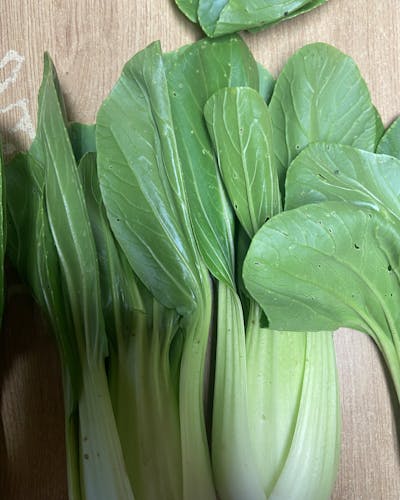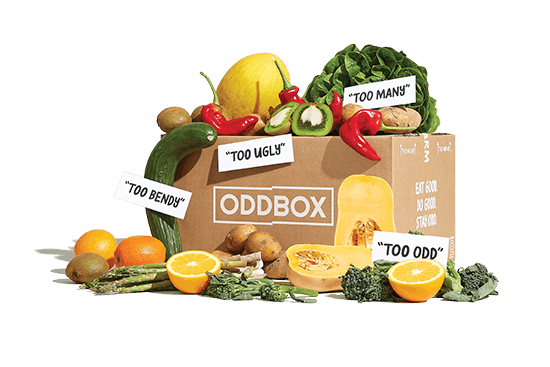Rescue story: nibbled pak choi
Love pak choi? You’re not alone. In fact, there’s one little bug that loves it so much, it’s managed to nibble through 100% of our growers’ crop in Worcestershire. We took to the fields to find out more.

Unpack your box this week and you might notice something a little… odd. No, this isn’t a new variety of speckly pak choi, it’s actually the work of a little insect called a flea beetle.
These tiny critters are very common and can cause damage to all kinds of crops, including radishes, broccoli, cabbage, turnips, peppers, tomatoes, potatoes, spinach and melons. They also love hot weather, which means the heatwave in June has led to one big, summer-shaped problem for our Worcestershire-based growers. They explain:
“Extreme fluctuations in the weather, as we’ve seen recently, result in higher levels of pests. We’re also seeing an influx of flea beetles because of more rape seed being grown in the area. Farmers have recently had new restrictions on the types of insecticides they can use on rape seed – great news for bees, but also, for flea beetles.”
Despite laying floating barriers over the tops of their pak choi, our growers couldn’t stop flea beetles from nibbling through the mesh – creating teeny weeny holes that grew with the leaves. Some of the outer leaves have been removed, but in this case, there’s damage beneath, too.
An unbe-leaf-able waste
So surely if a vegetable has been nibbled by an insect, it can’t be eaten? Not so fast.
The thing is, most attacks by flea beetles are mild. Meaning the vegetable still grows and thrives as usual, albeit with a slightly different appearance. These pak choi still taste the same, have the same ‘shelf-life’ and are just as crunchy. And there are no actual flea beetles in sight.
But despite all this, cosmetic defects like speckles, holes and scars are a big no-no for retailers and restaurants, meaning the entire crop was instantly rejected and left with nowhere to go.
One last chance
When our growers contacted us, we’ll admit we had some reservations. Pest damage? Fine. Pests? No thank you. But with some strict quality-control rules in place, plus extra checks at every stage of the picking and packing process, we’re confident the only difference is visual.
This kind of rescue story is what Oddbox is all about, after all – especially with a crop like pak choi which is unlikely to find another secondary food destination. (Pak choi jam, anyone?)
We know we have a community of food-waste fighters who can see beyond appearances. And we know you’ll feel the same sense of choi in knowing we’ve stopped perfectly good food from going un-crunched. Now what’s for dinner?

